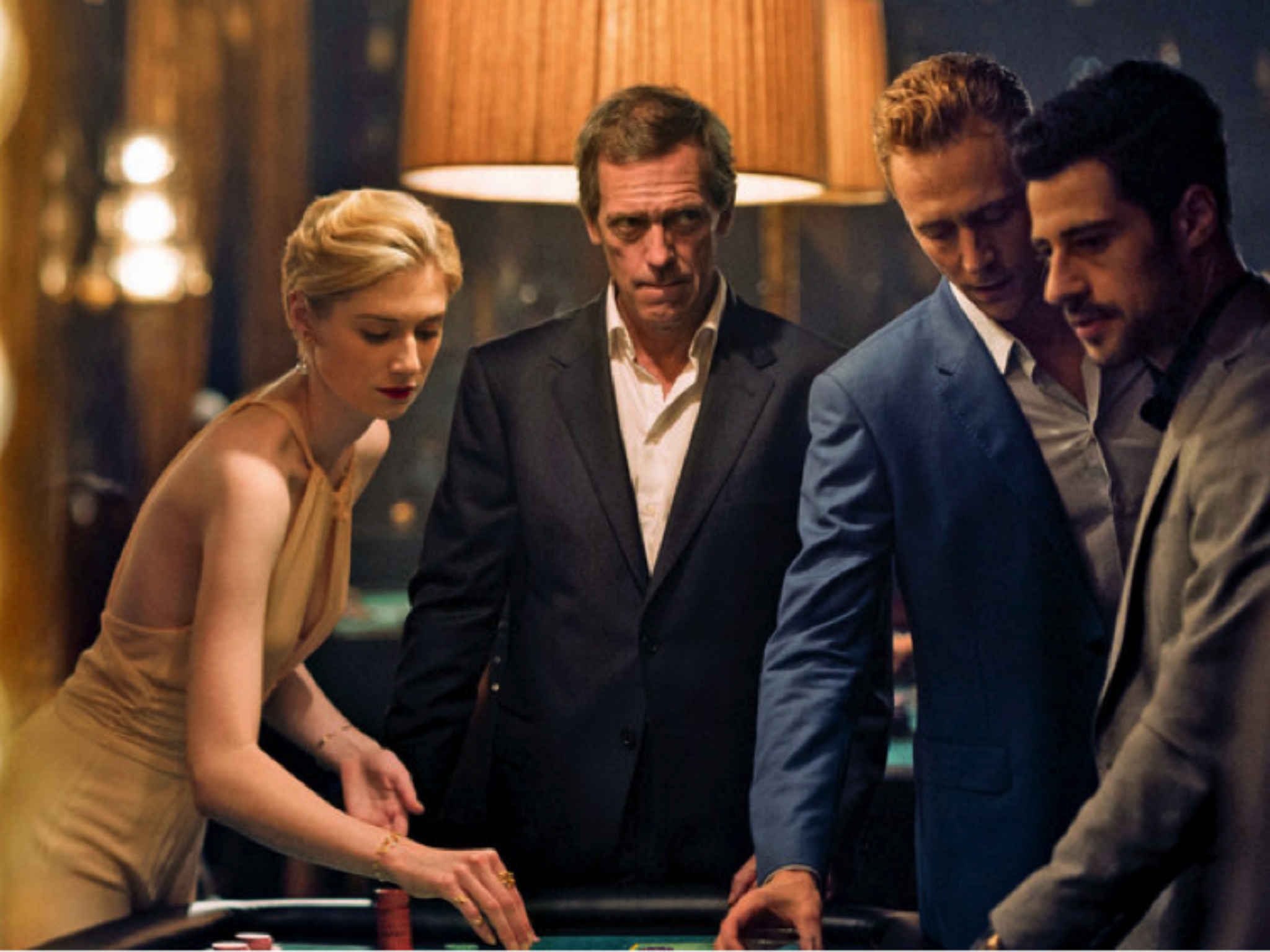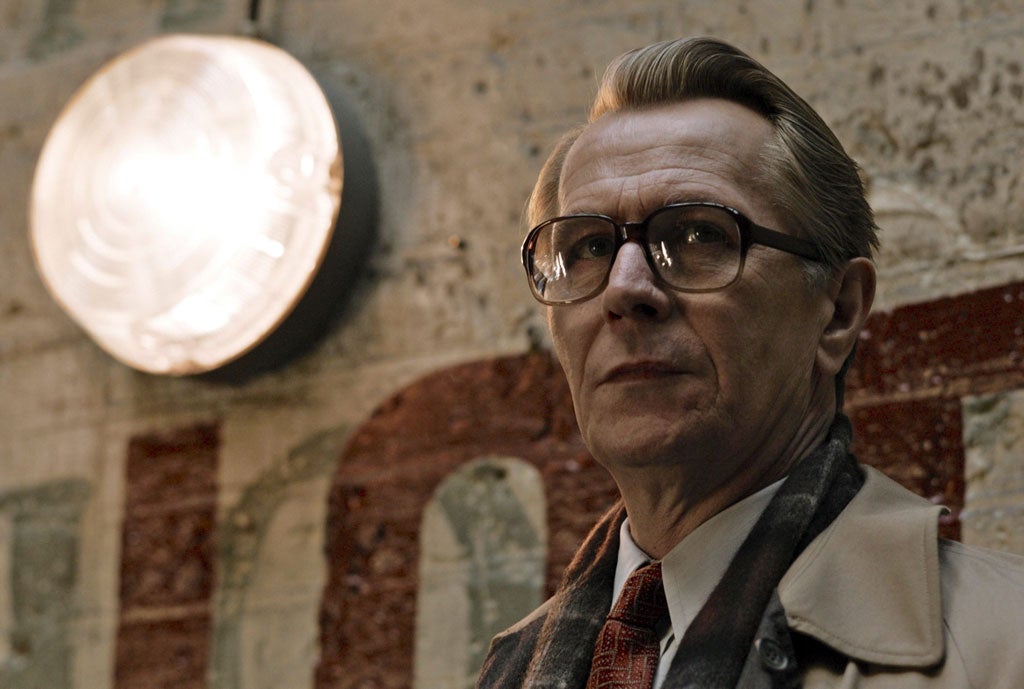From The Little Drummer Girl to Tinker Tailor Soldier Spy: Why John le Carre is much better than a TV adaptation could ever suggest
‘The Little Drummer Girl’ on TV, like ‘The Night Manager’ before it, is all smooth surface, Sarah Crompton argues. But the novelist himself is all about moral depths and ethical evasions

Like millions of others, I am happily addicted to The Little Drummer Girl on Sunday night TV. I like its stylishness – the way certain moments look like David Hockney paintings and others look like advertisements for bathroom catalogues circa 1982. (Avocado tiles, anyone?) And I love the performance of Florence Pugh, one of the best screen actresses around, who brings to the unlikely character of Charlie, the actress recruited to be a Mossad agent, a considerable amount of light and shade.
But as much as I enjoy it, I wonder how good an advertisement it really is for John le Carré. It’s all plot and mood, whereas his novels, as I have recently discovered, are something else. The Little Drummer Girl on TV, like The Night Manager before it, is all smooth surface. But the novelist himself is all about moral depths and ethical evasions. He is much better than a TV adaptation could ever suggest.
I didn’t get round to reading him for years, despite people urging me to give him a go. Perhaps I was put off by the old adage that spy fiction is for boys while women prefer the detective genre.
In The Night Manager, blokes rush around dropping secrets in letter boxes and skulking on corners, drinking in gentlemen’s clubs and generally belonging to another age, while in The Little Drummer Girl, clever people (often women) solve crimes and reveal the mysteries of the human heart.

As with most people of my generation, I had loved watching Tinker Tailor Soldier Spy unfold with glacial slowness on TV. But I was quite young when it was on, so it fell into the same category as Brideshead Revisited and The Jewel in the Crown: a great television saga.
I watched and liked it again when it was made into a film starring Gary Oldman, but by then I couldn’t help noticing that the women in the plot were spymaster George Smiley’s adulterous and frankly irritating wife Ann, who kept having affairs, and Connie Sachs, the eccentric Russian analyst, who may be a genius but is also an alcoholic with terrible fashion sense. Neither made me feel that Le Carré was a novelist who understood women or had much to offer to me as a reader.

But then I actually read one of Le Carré’s novels. Or to be more accurate, I listened to it, via a wonderful recording on Audible, narrated by Michael Jayston (who played Peter Guillam in the TV adaptation of Tinker Tailor and who does a canny imitation of Alec Guinness playing Smiley when he reads the Smiley novels aloud).
The novel I began with, bored on a long journey, was The Russia House, Le Carré’s first post-glasnost novel, which catches the uncertainty and new moral shadings of the Gorbachev era. I was hooked instantly by the detail of its early chapters, set at the Moscow Book Fair and painting a vivid picture of the tentative tendrils of glasnost and the way westerners interact with Russia. I stayed hooked because both plot and character were so engrossing.
But the moment I was convinced of the genius of John le Carré was when a Russian friend came to tea and talked about what it was like living in Moscow at that time. “We would never wear our cardigans,” she said. “We used to envy the girls who came over from Paris with such beautifully cut clothes. Ours were so ugly.” As she said it, I realised I already knew that because in The Russia House, Katya, the Russian translator who is pivotal to the plot, says something very similar. I knew suddenly that the situations described in such close and absorbing detail were truthful.
This is a novel that is all about the morally degrading and inherently pointless activities of the Intelligence agencies; the way good intentions can be betrayed by people we trust and, conversely, the qualities people need to find within themselves to be heroic and act well. It is about the universal (human nature) and the specific (Russia). It sings with its insight. Reading it, I felt I understood modern Russia better; so many of its observations send shafts of light into contemporary politics. The fact that I don’t still think Le Carré is the best writer of women didn’t seem to matter as much as it had.
I was off and running. My next choice was A Perfect Spy, a novel that draws heavily on Le Carré’s own background not only as an MI6 agent, but as the son of a conman father, as it tells the story of Magnus Pym, a high-ranking British intelligence officer who turns out to have been a Czech double agent. Its theme is not the revelation of that fact but an attempt to understand its cause.
It has a complicated structure, winding between past and present, and represents a perfect summation of the nature of spying and its attraction. It also has a female character, in the shape of Magnus’s wife Mary, who, while not exactly drawn from the inside (she is another drunk, and she has had an affair with Magnus’s boss), is both resourceful and fallible. But what I really loved about A Perfect Spy is the pure pleasure of the words on the page and how much they reveal about England and Englishness, never mind about the dark and dirty secrets of human compromise.
I am now on The Honourable Schoolboy, the follow-up to Tinker Tailor and am once again entranced by the sheer weight of the description, its eagle-eyed accuracy. At one point, Smiley visits the suburbs. “There are blocks of flats near the Town and Country golf course on the northern fringes of London that are like the superstructure of permanently sinking ships,” Le Carré writes. “They lie at the end of long lawns where the flowers are never quite in flower.” It is writing of the highest calibre. You feel you see the flats; you feel you know their inhabitants.
Which brings me back to The Little Drummer Girl, which I am watching with a mixture of pleasure and impatience. I admire director Park Chan-wook’s careful staging of the action, the way it is full of lush colour and beautiful scenes; the section in Sunday’s episode where Anna, the bombmaker’s accomplice, was arrested in long shot, was a mini masterpiece. It’s a sign of the show’s creativity that the scene was only referenced, and not actually described, in the original novel.
We can presume, since Le Carré and his sons are producers, that they approve of this approach. Le Carré appeared on Sunday in a tiny cameo as a waiter, looking rather pleased with himself. But he must know that however honourable or exciting the adaptation, what makes him an author of such note is lost. Discovering him on the page is a revelation.
Join our commenting forum
Join thought-provoking conversations, follow other Independent readers and see their replies
Comments